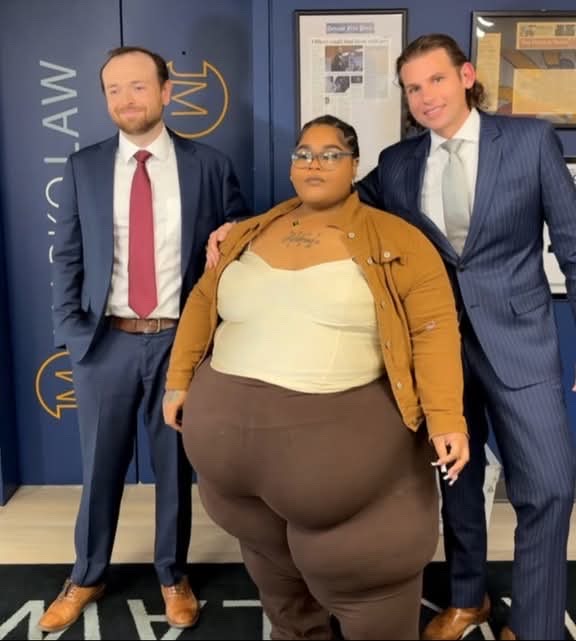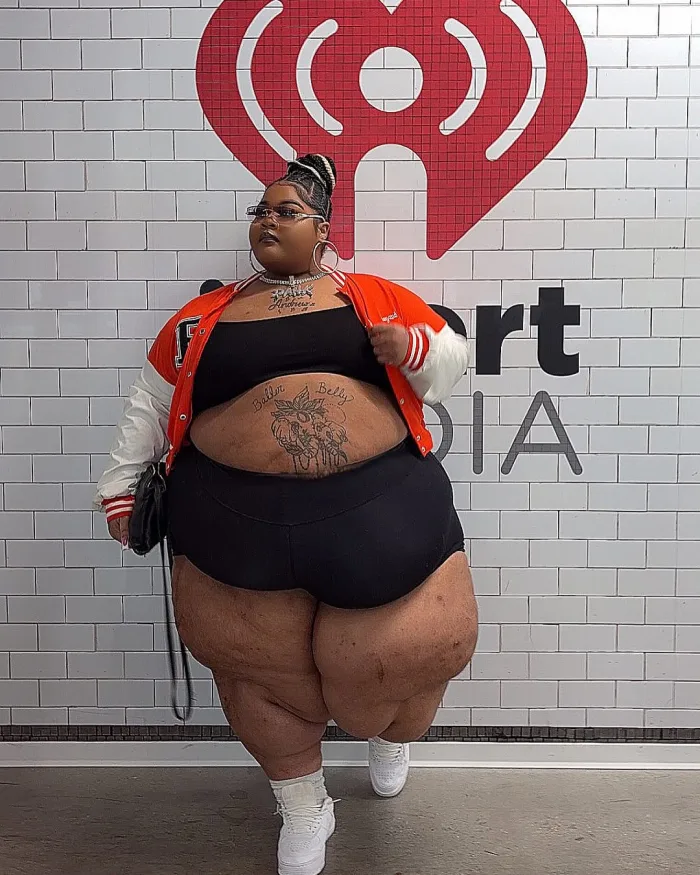
A Michigan rapper is suing Lyft, alleging a driver refused to pick her up because he believed she was too heavy for his car.
Dajua Blanding, 36, known by her stage name Dank Demoss, recorded the incident earlier this month, capturing a tense exchange in which she insisted she could fit in the vehicle while the driver repeatedly disagreed.
“I can fit in this car,” Blanding stated in the video.
“Believe me, you can’t,” the driver responded.
Ultimately, the driver canceled the ride, assuring Blanding she wouldn’t be charged. However, she has since filed a lawsuit against the rideshare company, claiming the experience left her feeling humiliated and discriminated against.
“I’ve been in cars smaller than that,” she said in an interview. “I just want them to know that it hurt my feelings.”

Social Media Backlash
After posting the footage to Instagram, reactions poured in—many siding with the driver. Some suggested Blanding should have opted for a larger vehicle, like a Lyft XL, which is designed for more space.
“It’s against the law to overload a car,” one commenter noted. “The driver was polite, explained his reasoning, and even apologized… try seeing things from another perspective.”
Despite the backlash, Blanding remained firm, accusing Lyft of mistreating plus-sized riders.
“AM I WRONG?” she wrote in her now-viral post. “Lyft, what do you have to say about this driver who discriminated against me? I feel like you all treat big people like s*. Like we don’t belong here.”**
The Legal Battle
According to her lawsuit, the driver arrived in a Mercedes-Benz sedan but locked his doors and attempted to drive away upon seeing her. When confronted, she claims he told her she was too large to fit in the backseat and even suggested her weight could damage his tires.
“What do I have to do with your tires?” Blanding is heard asking in the video.
Her attorneys, Jonathan Marko and Zach Runyan, argue that the driver’s actions violated Michigan law, which classifies weight as a protected characteristic.
“I knew that it was illegal, and I knew that it was wrong,” Marko told Fox 2, comparing the situation to denying someone a ride based on race or religion.
Runyan added: “Denying someone transportation based on their weight is not only illegal but dangerous. Imagine if Ms. Blanding had been left stranded in unsafe conditions—this could have ended even worse than it did.”
Blanding Stands Her Ground
While some critics argue that the lawsuit unfairly targets a driver who was simply concerned about his vehicle, Blanding has remained vocal. Days after sharing the original footage, she posted another Instagram video of herself in yoga shorts and a jacket, captioning it:
“Me tryna get Lyft to not discriminate against my weight and let me in the car! Would you let me in?? Anyways, meet me at the Sexxy Red afterparty.”
Blanding has previously opened up about her weight. She revealed in December that she weighed over 500 pounds but had recently lost more than 40.
Lyft Responds
In response to the controversy, Lyft issued a statement condemning all forms of discrimination.
“We believe in a community where everyone is treated with equal respect and mutual kindness. Our community guidelines and terms of service clearly prohibit harassment or discrimination,” the company stated.
As the lawsuit progresses, the case raises broader questions about passenger rights, driver discretion, and the balance between personal safety concerns and discrimination in the rideshare industry.